Reclaim
Furniture Collection

The Reclaim ottoman set was inspired by the effort to repurpose textile waste from within the fashion industry to develop new sustainable furniture for environmentally conscious businesses and customers. This was a 12-week intensive project that dived into the topics of waste streams, manufacturing, business opportunities and brand alignment.
Prelude
Fashion Meets Furniture
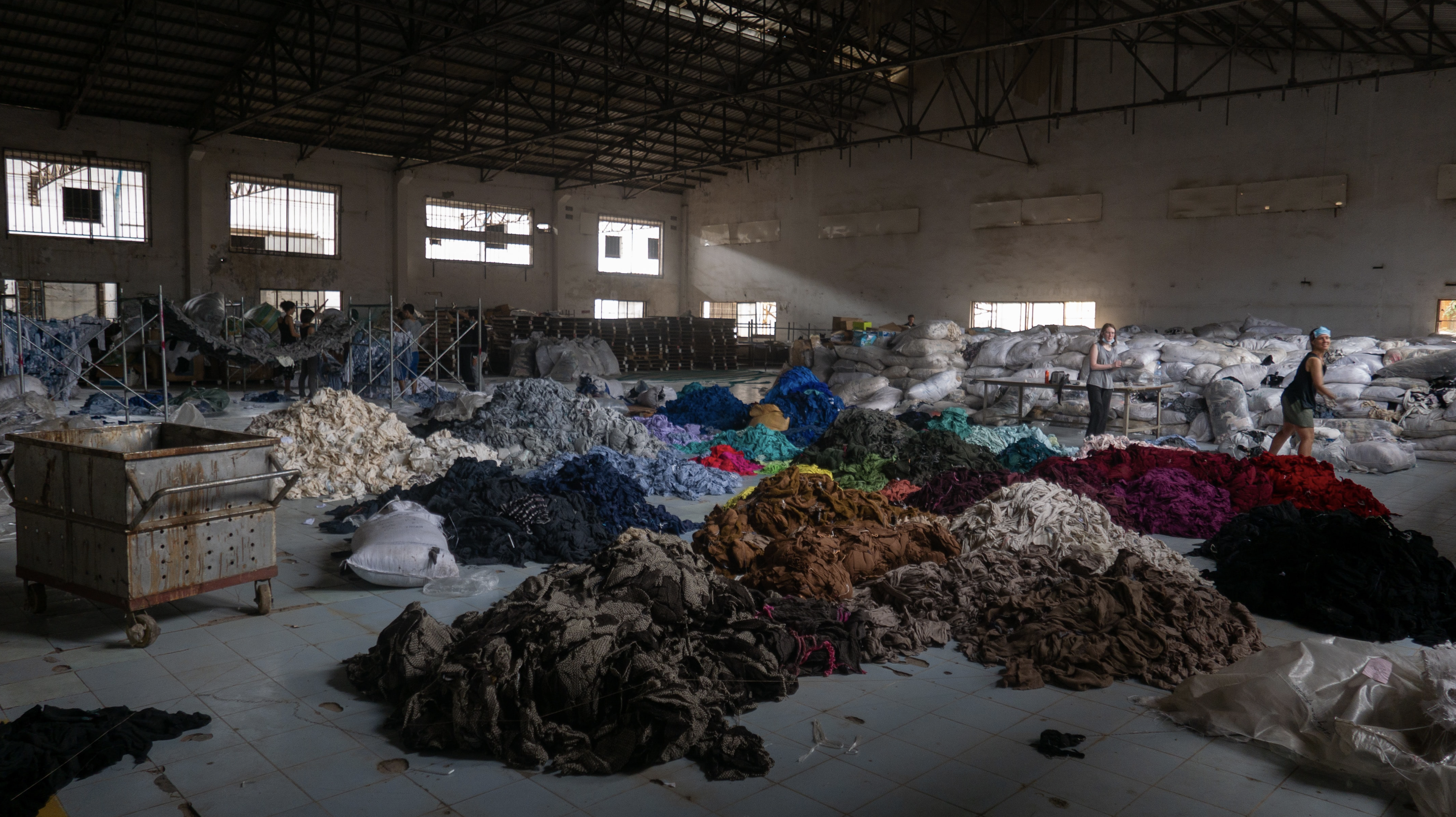
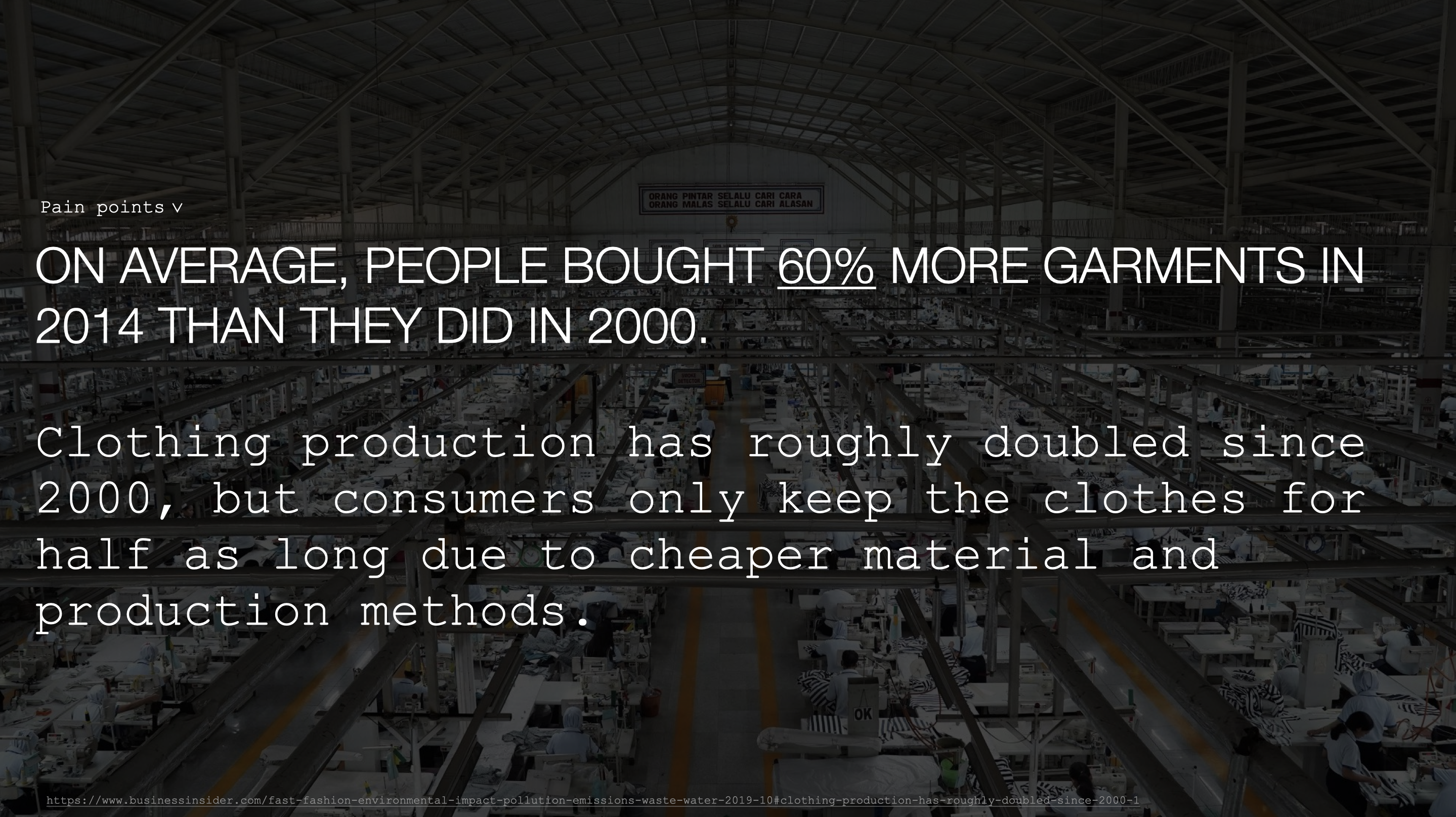

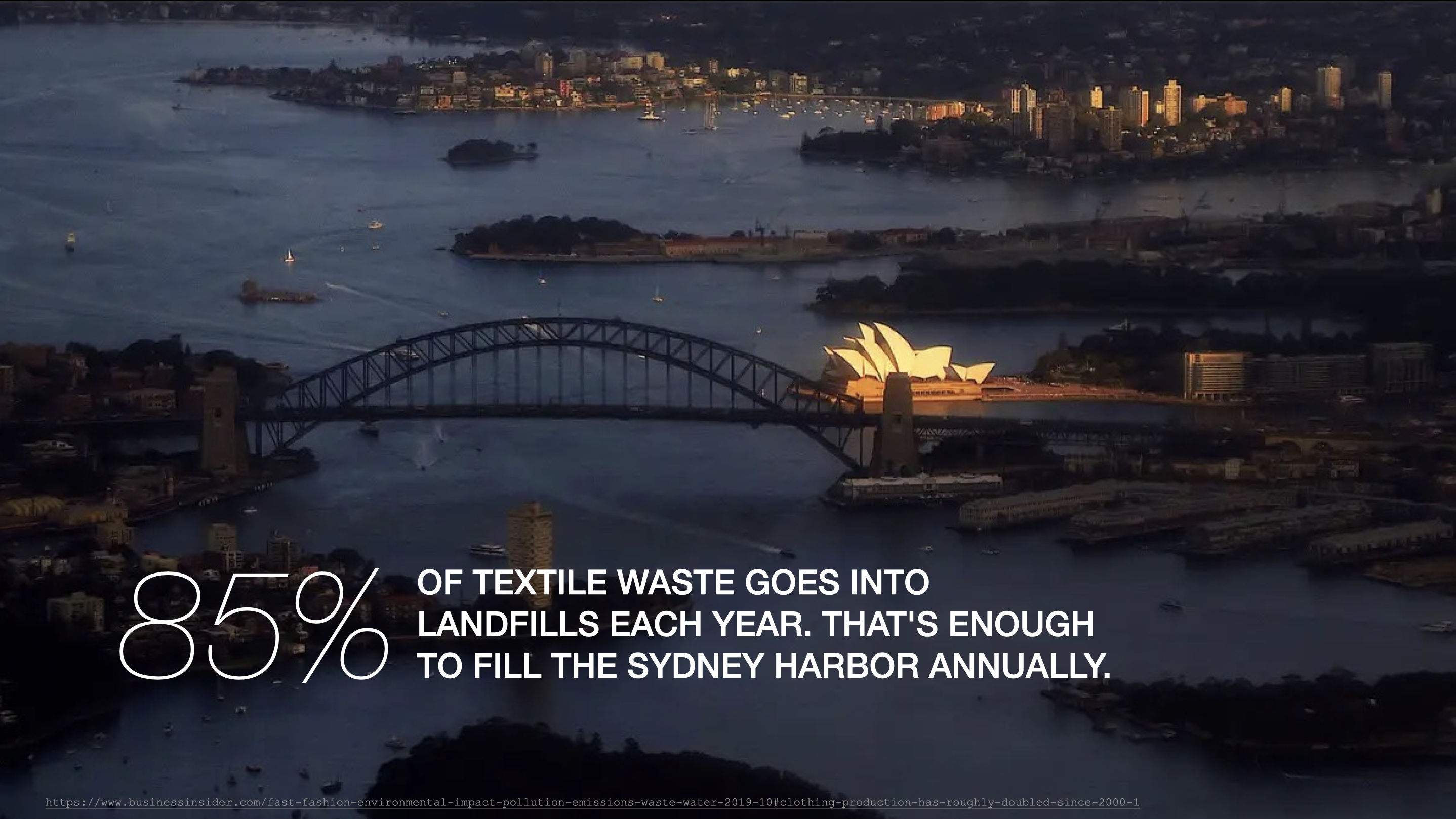

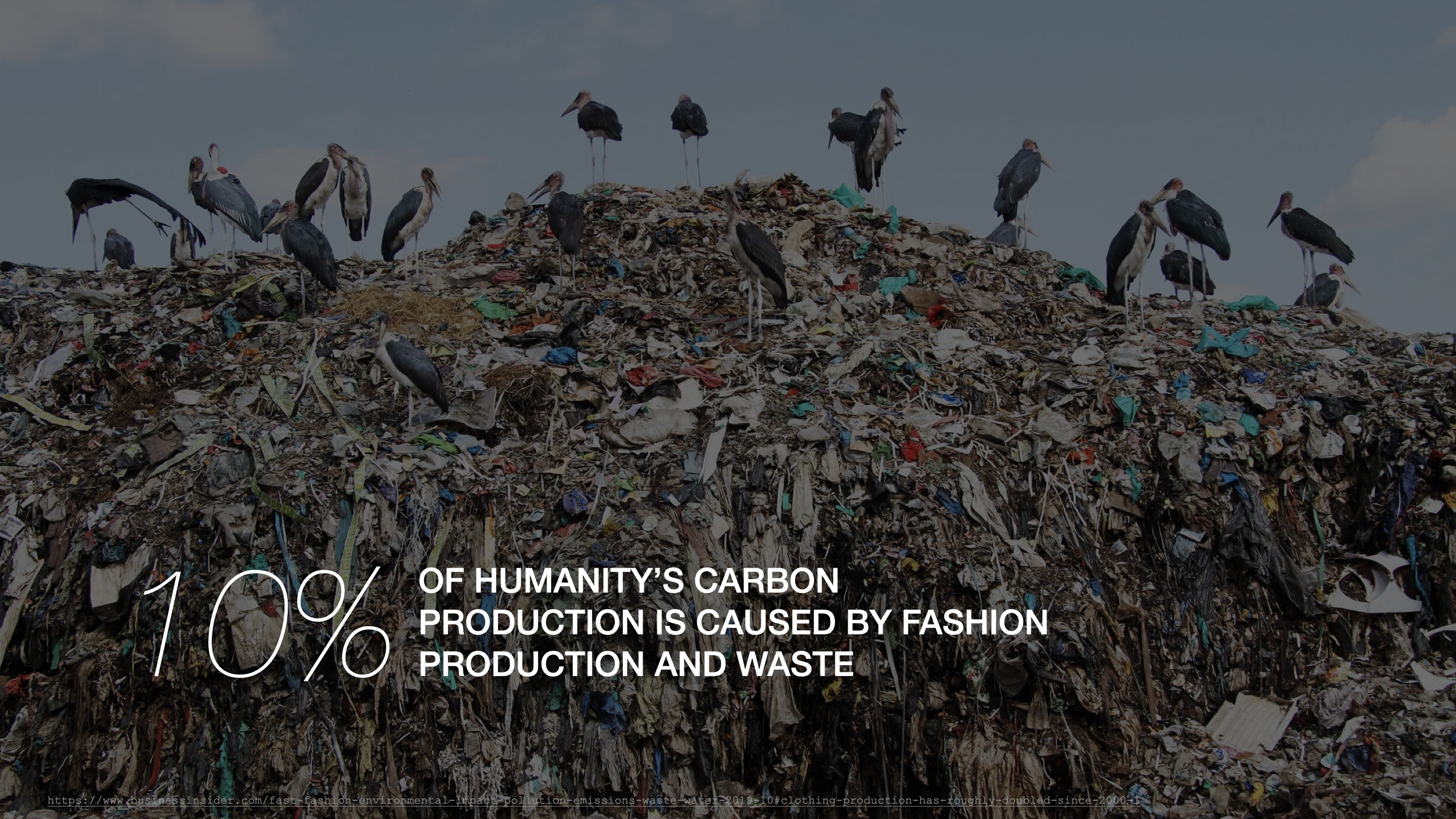
The Problem at Hand ︎︎︎
Garment manufacturing produces more textile waste than the world can maintain, and unfortunately this has devastating repercussions not only on our environment, but for those in close proximity to its production and ultimate destruction as well.
Brand Alignment ︎︎︎

While this project is focused on sustainable production, I found a unique opportunity to align with a sustainably conscious fashion brand to highlight their progressive initiatives while offering new and relevant products for their audience.
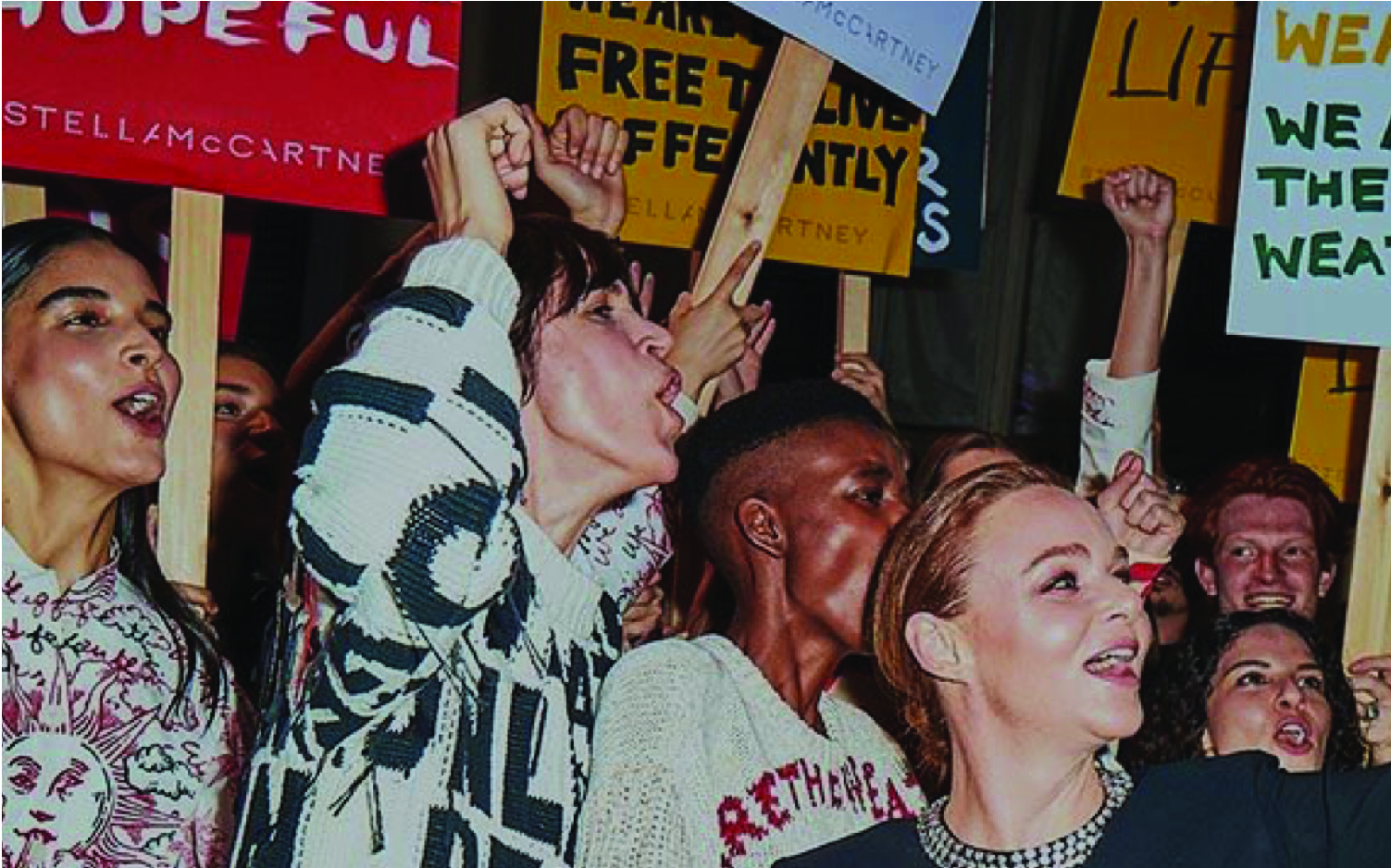
Stella McCartney is an upscale, high fashion brand that recognizes the negative impact the fashion industry has on the planet. They make it their mission to address these issues and develop new, more ethical and circular processes to reduce their damage

What has been ︎
What could be?
Reclaiming fashion waste to create furniture for eco-conscious customers and businesses*
Material Selection ︎︎︎
︎ Recyled aluminum
︎ Stella McCartney excess textile waste
︎ Fast fashion textile waste
︎ Recyled aluminum
︎ Stella McCartney excess textile waste
︎ Fast fashion textile waste
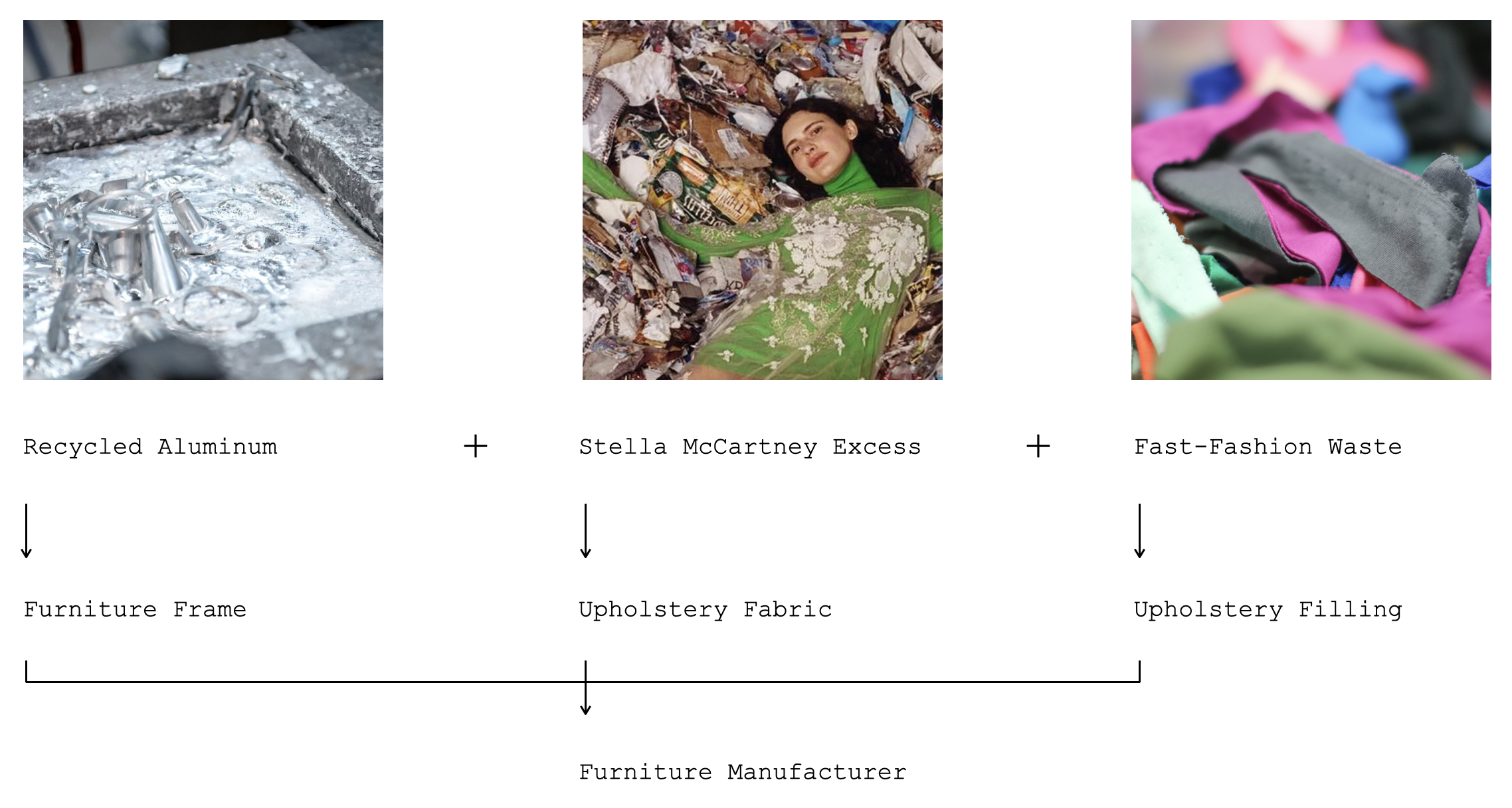
Manufacturing Pipeline ︎︎︎
Here is the manufacturing pipeline for the sourcing for each of my three primary materials. I look at where they are originally extracted from as natural resources, how they are processed and recycled, and ultimately how they are produced and sold through Stella McCartney’s retail channels to be sold to the final consumer.
Here is the manufacturing pipeline for the sourcing for each of my three primary materials. I look at where they are originally extracted from as natural resources, how they are processed and recycled, and ultimately how they are produced and sold through Stella McCartney’s retail channels to be sold to the final consumer.

Material Ideation ︎︎︎

Textile Testing ︎︎︎
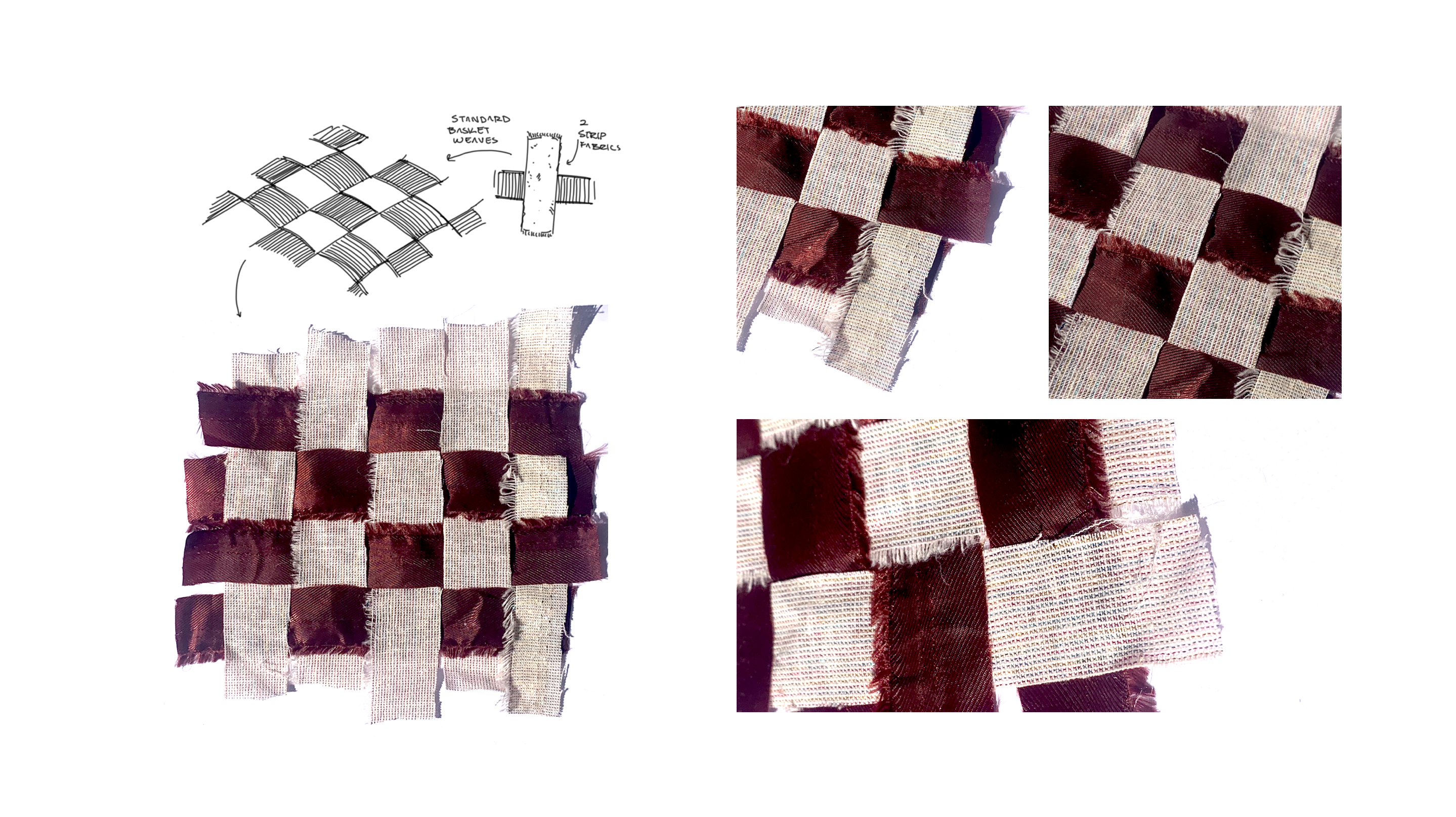

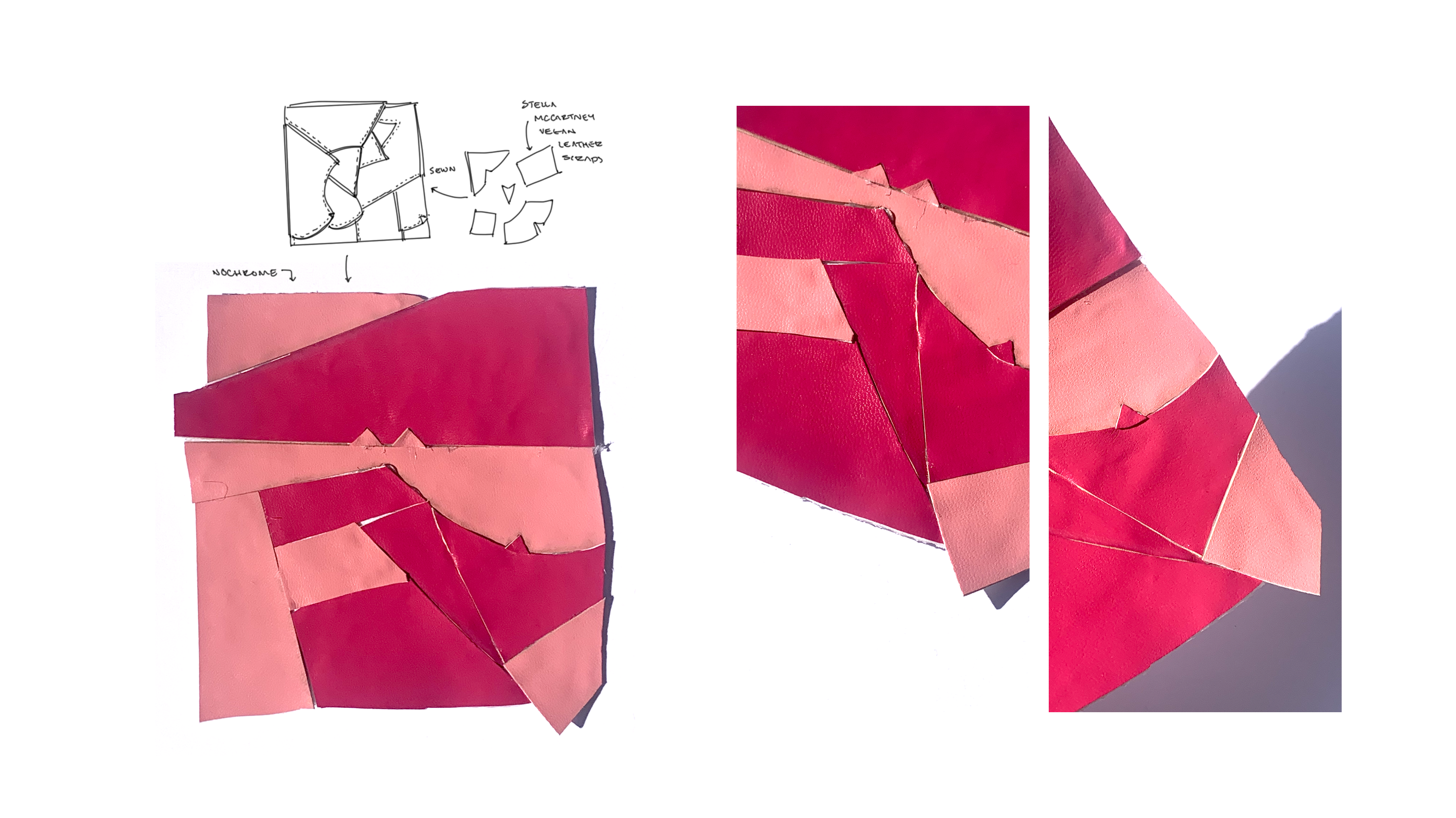

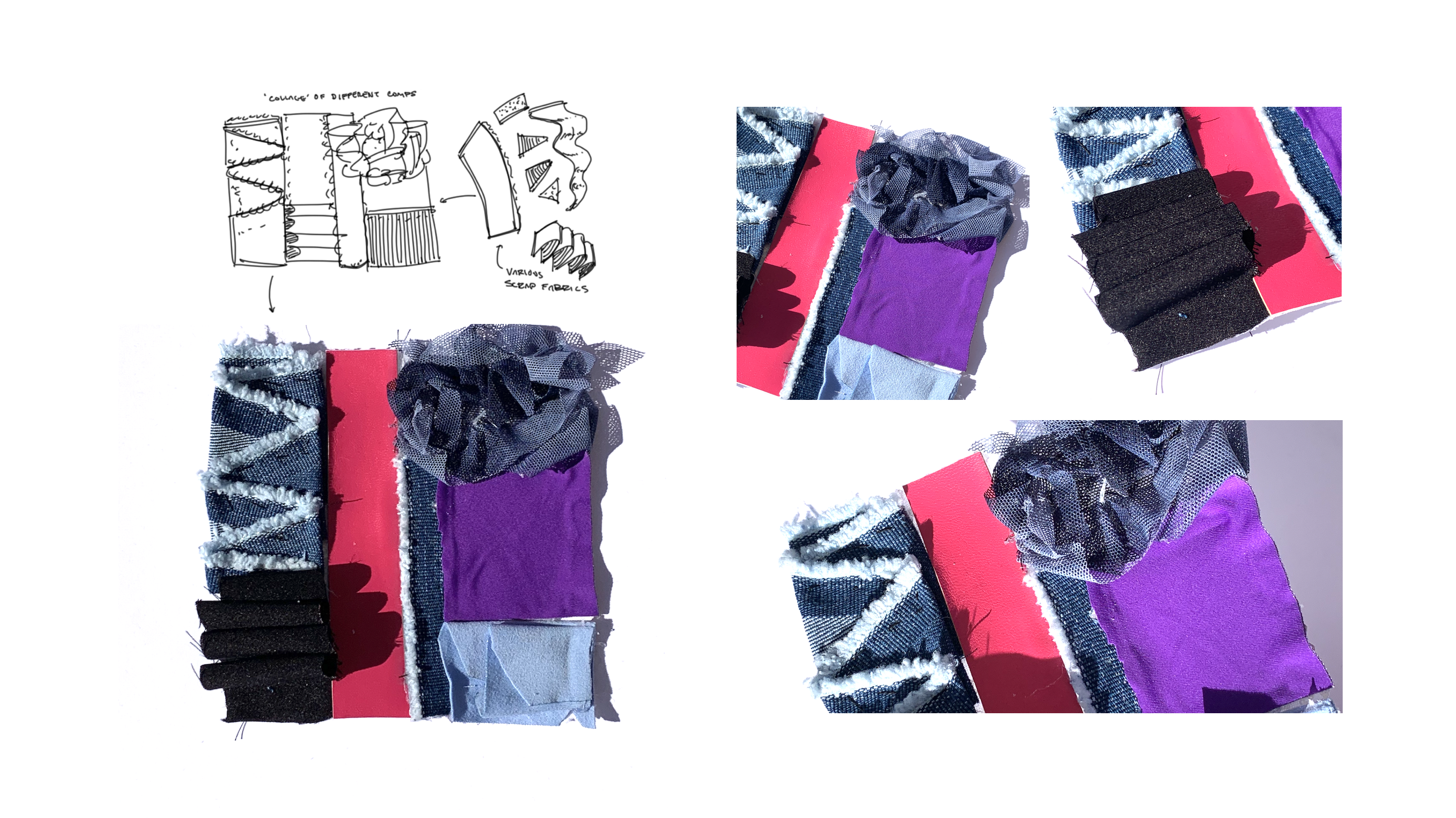


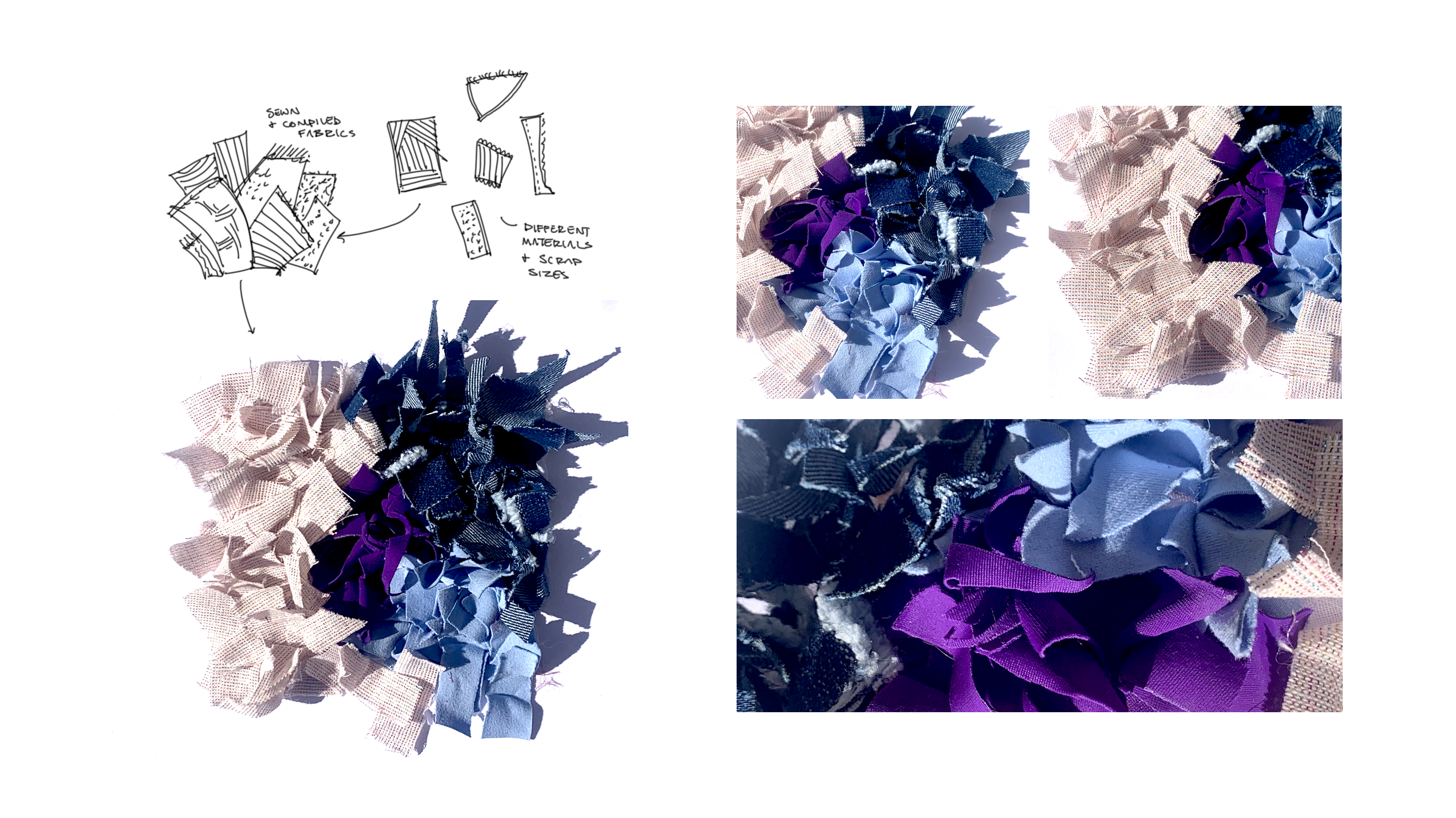

Final Material Swatches ︎︎︎
Application Selection ︎︎︎
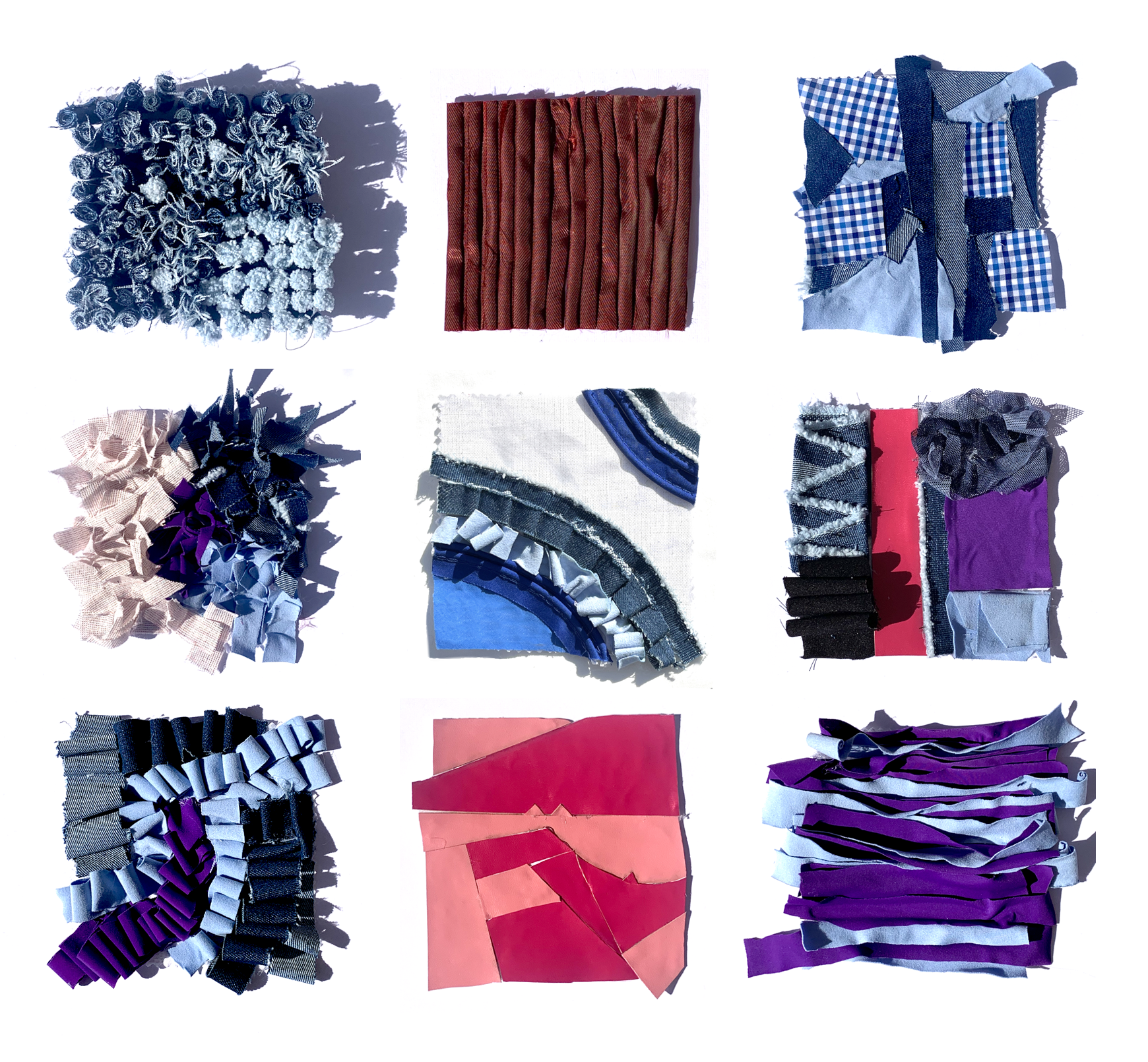

Final Ottoman Design ︎︎︎
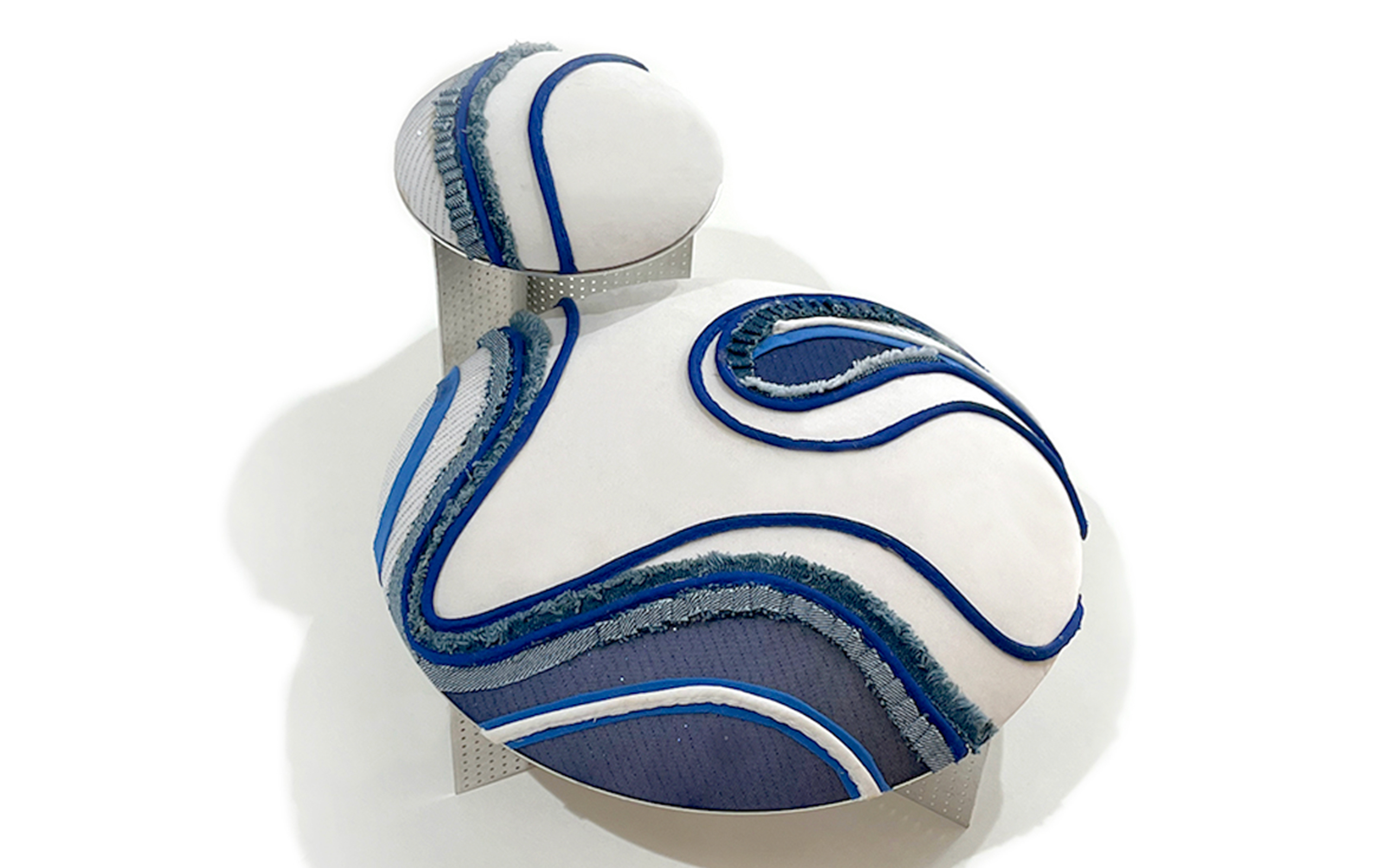

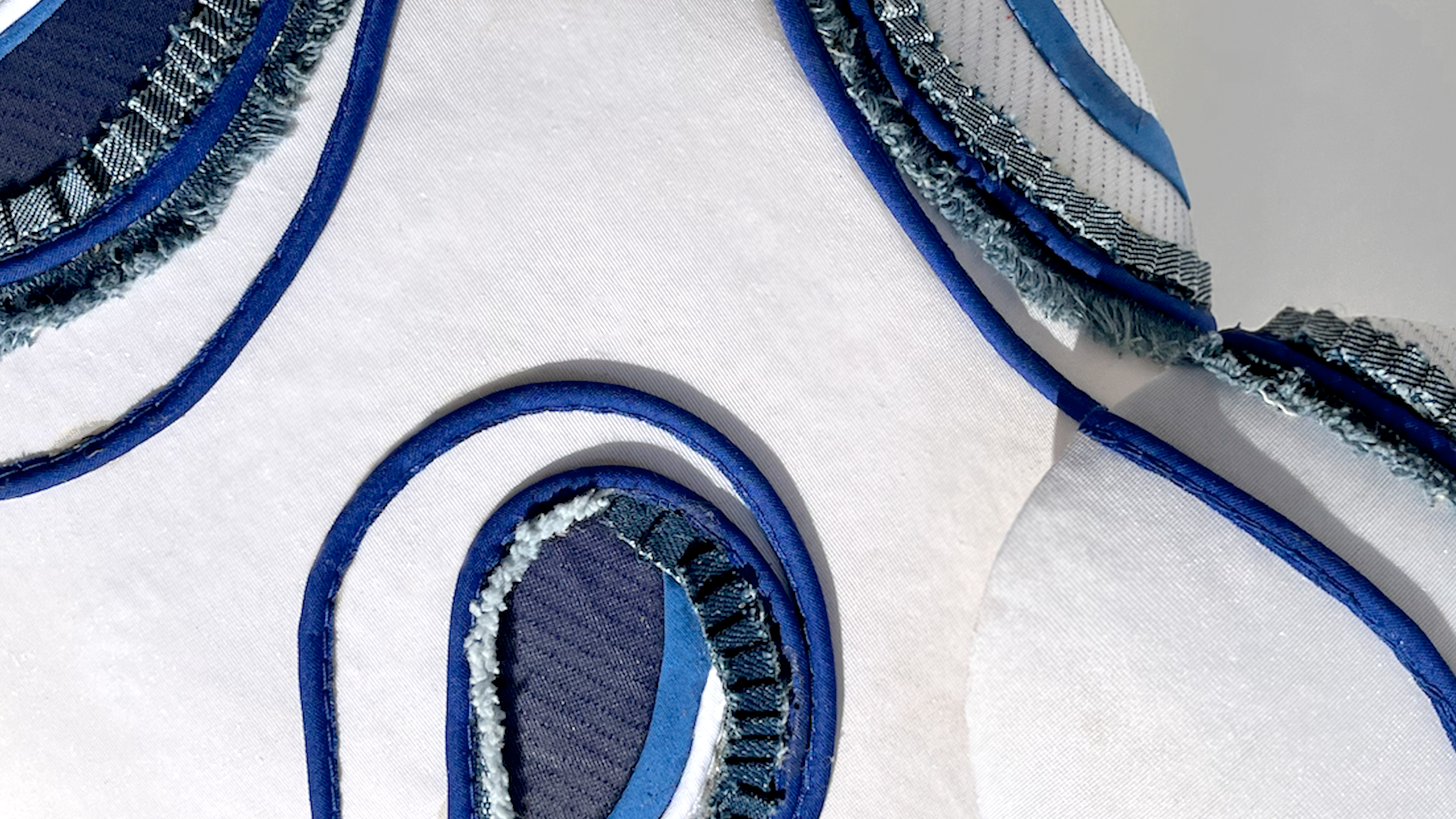

Assembly
The aluminum bases are made from flat 1/8” aluminum sheets that are formed with a single bend and welded to a solid aluminum plate. A birch plywood platform is used to hold the shredded fabric waste stuffing and to secure the top fabric with staples underneath. This top fabric uses a sustainable nylon made from ocean plastic waste called Econyl, which is produced by a Stella McCartney partner - and is adorned with a design made from Stella’s garment textile scraps.

Material Log
5/6 material components used are made from recycled contents, minus the plywood. I chose birch as an alternative to other hardwoods because it is a more renewable and fast growing species that causes little to no devastation when cut down.
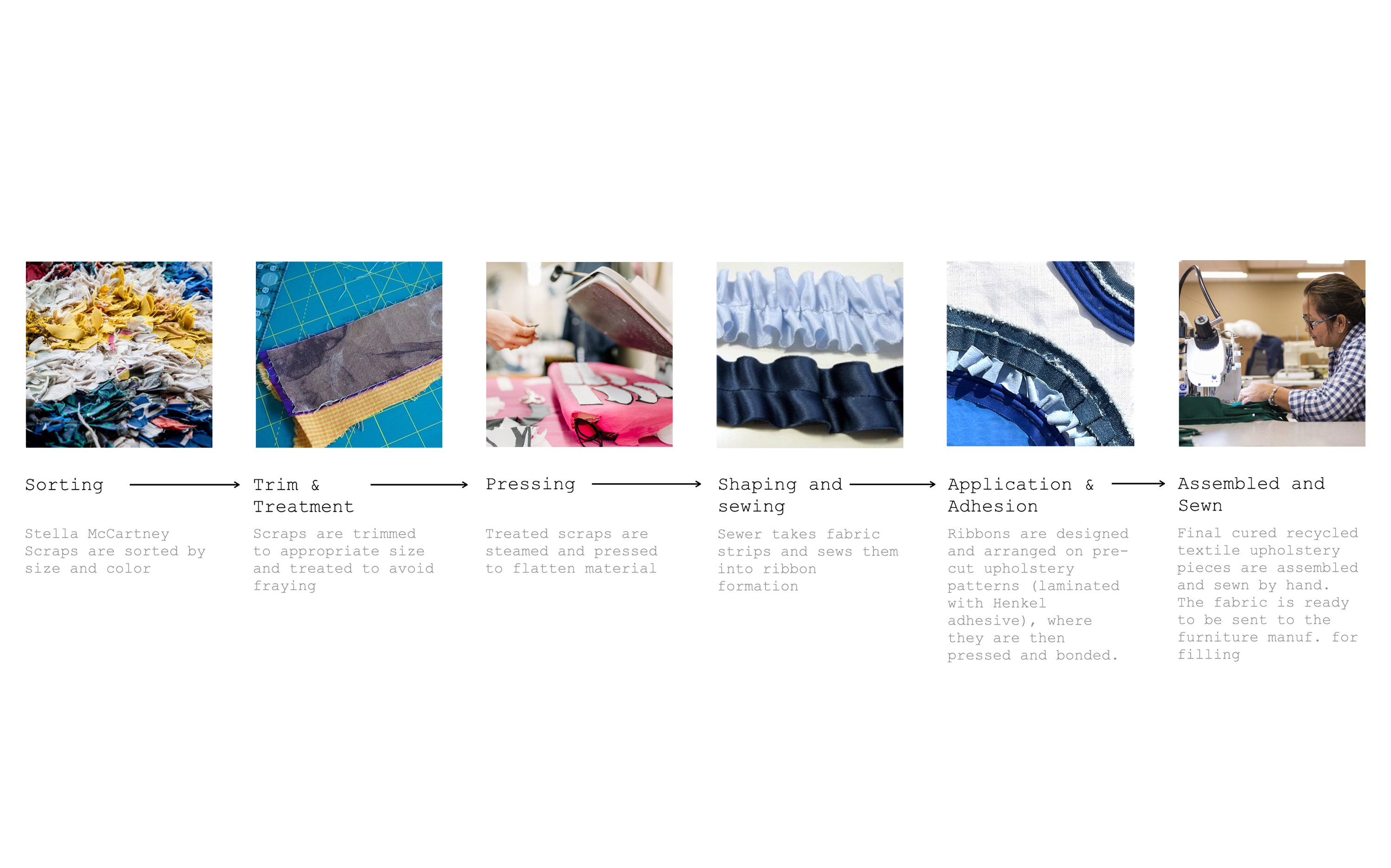
Handmade 3/D Textile
The process for creating the scrap design on the upholstery fabric starts with sorting of textile waste within Stella’s facilities, where they are then trimmed, treated and pressed. Sewers then take the scraps and sew them to form ribbons - which are positioned and adhered to the base Econyl nylon fabric. The finished upholstery patterns are sewn to get them ready for stuffing and assembly.

Upholstery Stuffing
The upholstery is filled with fashion scraps aquired by fast fahsion industry waste, which processed in an industrial textile shredder and then compressed in a dome shape mold to form a loose structure for the top of the ottomans.
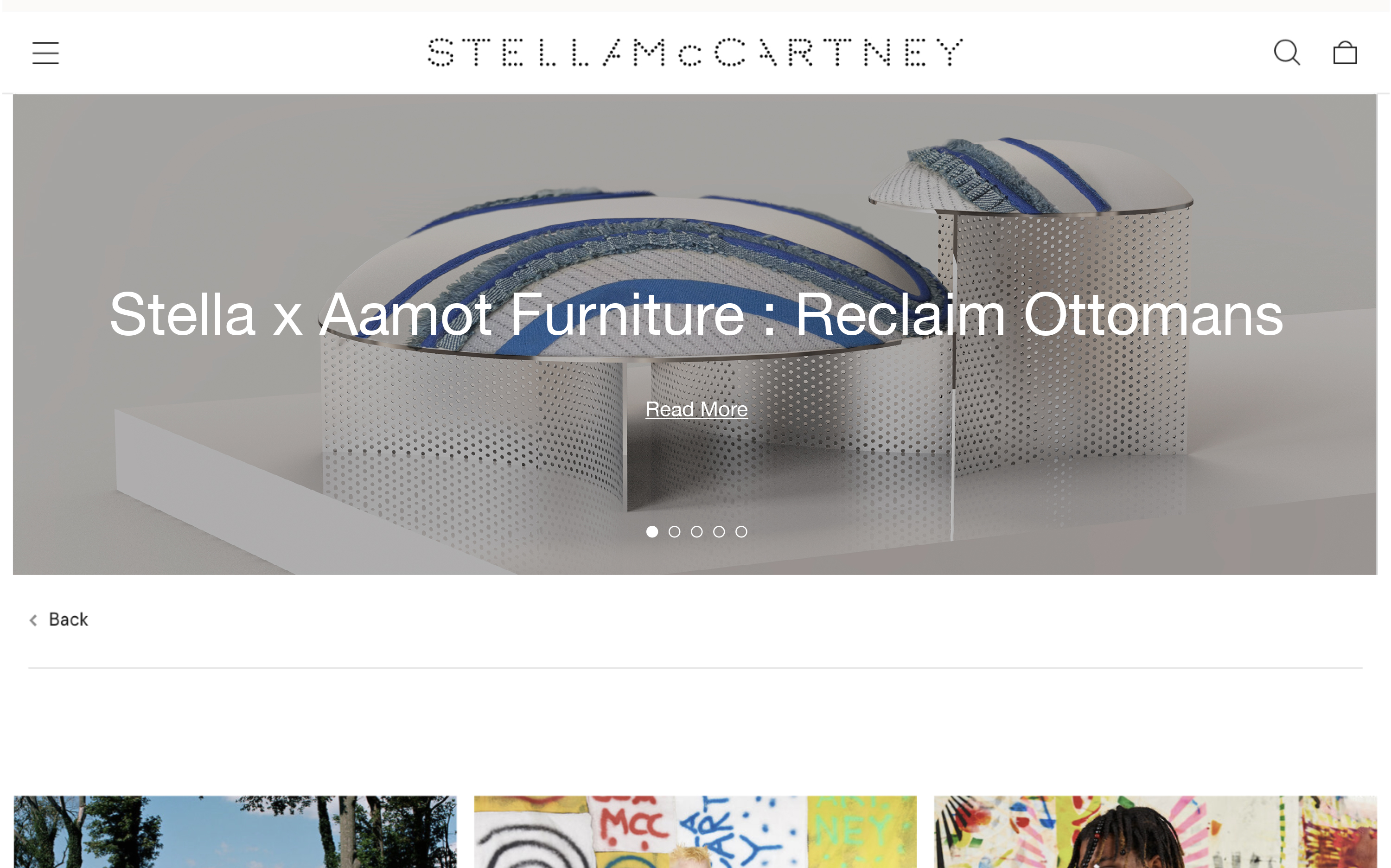
Stella Channel Distribution : Website
The Reclaim Ottomans can be highlighted on the ‘new promotions’ header on the Stella website to drive traffic.
Large - $4500
Small - $2500
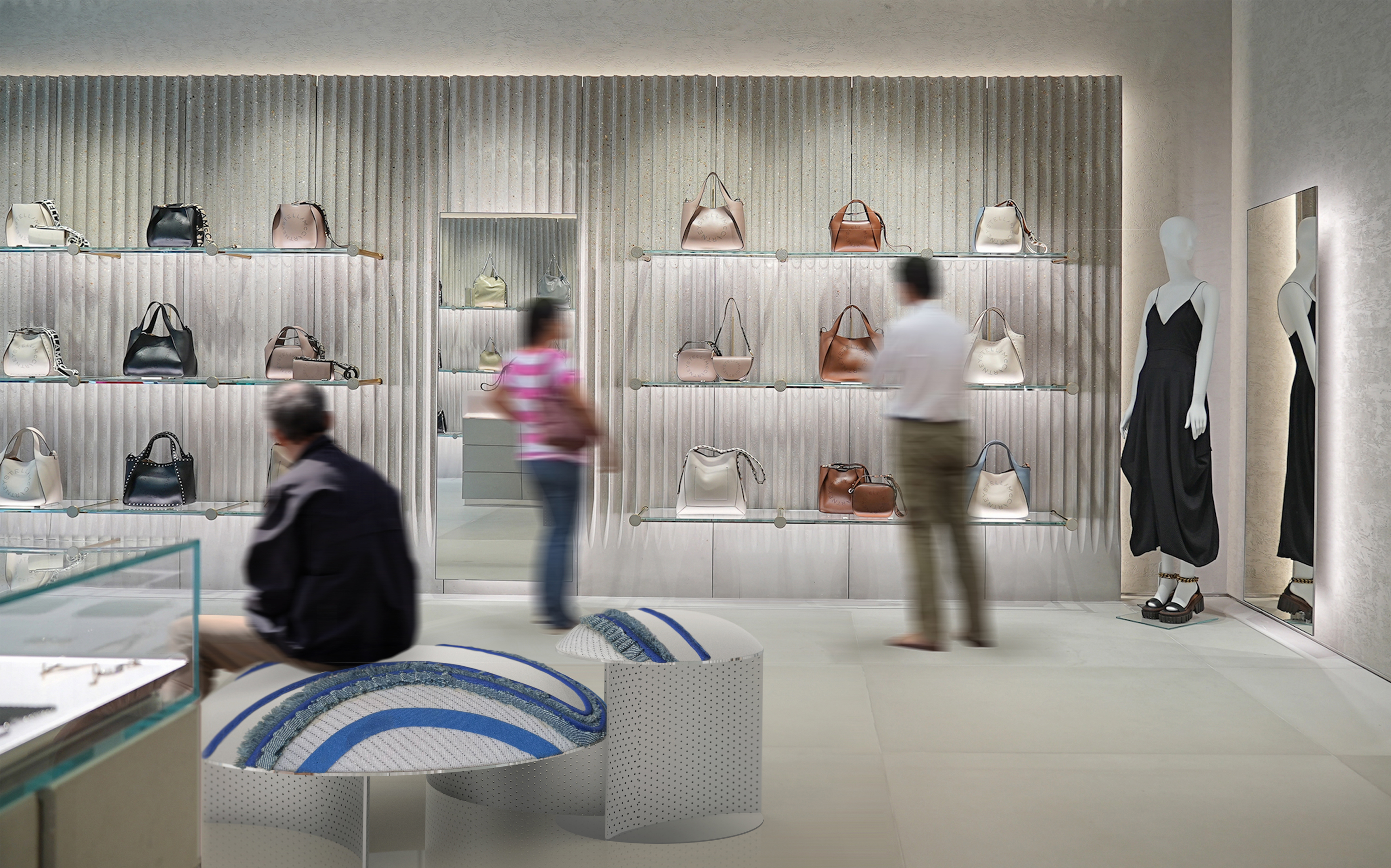
: Retail
They can also be incorporated within the design of the Stella retail stores, with customers getting the full interactive experience of sitting and using the furniture while they’re shopping for Stella products.

Ultimately, the reclaim ottomans aren’t just a pretty piece of furniture with sustainable materials, it creates a higher message that by developing beautiful and impactful designs, we can create the products of a cleaner world. With this design approach we can implement healthier manufacturing processes on a broader scale to reduce global environmental issues simply and efficiently.
